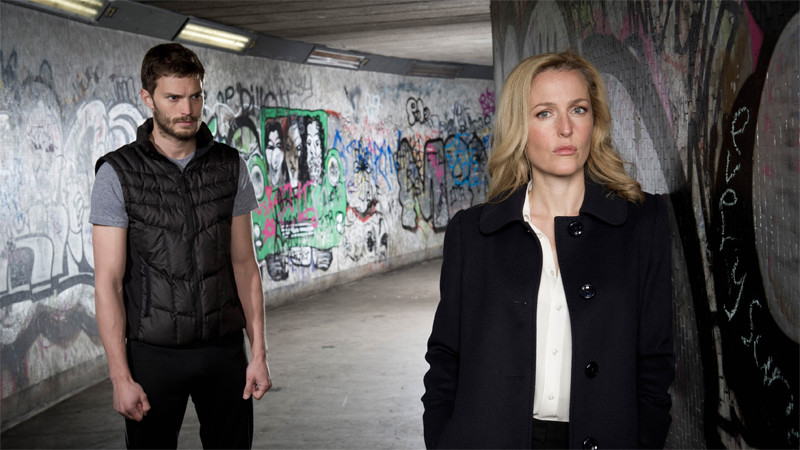By Aya de Leon
I see a trend over the past 20+ years: cop shows offer female audiences what we’ve been craving—strong, complicated, brilliant women protagonists—yet there seems to be a sexual violence “trade-off.” Older, more experienced women get to be powerful investigators, but the cases they get to investigate include disproportionate (and graphic) representations of violence against younger women and girls.
The Fall, for example, follows Belfast detective Stella Gibson, played by Gillian Anderson (The X-Files), a brilliant, independent female lead who defies convention. According to TV critic Emily Hashimoto, “It is clear that the detective is in charge of herself without any shame and guilt-ridden trappings often bestowed on female characters. Too often, women in TV and film are cast as incapable in their professional lives, waylaid by personal issues or a hysterical abundance of emotions….it is utterly refreshing to see a female character be good at her job without worrying about having a boyfriend or children.” However, the antagonist is “a serial killer…who favors targeting pretty young professional women,” Hashimoto says. “We see the way he stalks and plans; we see his violence.”
In The Bletchley Circle, we have a 1950s historical drama about four women who must return to civilian life after cracking Nazi codes during WWII. Sworn to secrecy about their classified work, they have to fit back into a world that denies the existence of their intelligence and crushes their ambition. They begin to investigate a series of murders that the police have gotten wrong. And you guessed it: the serial killer preys on women (the second season continues with more than one case featuring sexual violence).
Perhaps we have the U.K. to thank for this trend. In 1991, Prime Suspect premiered on ITV, starring Helen Mirren as Detective Chief Inspector, one of the first females to hold the position in Greater London's Metropolitan Police Service. Her original case involves the rape and murder of a young woman.


